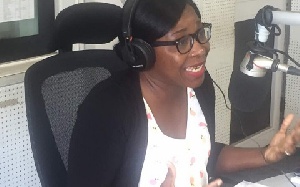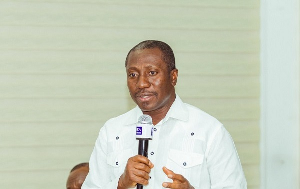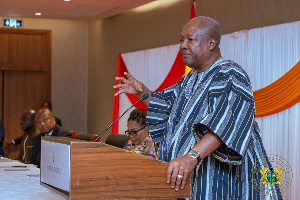Ghana should establish a ministry to effectively deal with diasporan issues if the resources available by Ghanaians living abroad are to be effectively harnessed for the country’s development, Dr Amanda Coffie, a Research Fellow at the Legon Centre for International Affairs and Diplomacy (LECIAD), has suggested.
“Structures are important and as to whether having it in the presidency is the way to go, from the experience of other countries, the way to go is not the office of presidency but it is a start,” she told Dr Etse Sikanku on Class FM’s World Affairs programme on Friday, June 30.
She is envisaging a ministry for the diaspora in the long term to effectively harness the opportunities that the diaspora represents as the country now considers the diaspora as its 11th region.
“…Other states have ministries for the diaspora. Once we think through and outline what we want from the diaspora and know what the diaspora wants from us we might also be going towards that direction,” she explained.
Government is to hold a conference dubbed the Ghana Homecoming Diaspora Summit, scheduled for July 5 to July 8, and Dr Coffie emphasised that stakeholders should be able to integrate Ghanaians in Ghana into diaspora programmes because when Ghanaians abroad return they will be engaging entrepreneurs and other individuals already in Ghana, hence locals should not be left out in order to have a comprehensive programme.
On her part, journalism lecturer at Webster University Esther Armah underscored a summit would be apt in order to establish an agenda to get people involved but should not be a substitute for practical processes that will focus on implementation and getting results in helping the diaspora to invest in the Ghanaian economy.
She also proposed effective information dissemination, especially online, because “you have entire groups of people who may never physically come home to Ghana but want to have some kind of engagement and connection to do something but don’t know how to do it”.
She emphasised that without effective working processes the summit will end up only as a rhetoric with nothing being achieved.
She lamented the slow pace of getting results, especially at the ministries and other agencies, and advised diasporans to allocate enough time if they want to be there physically because “if you are coming and you don’t have much time the first experience, because of unrealistic expectations by many in the diaspora, could be very disheartening and may impact on willingness to engage”.
Meanwhile, the Director of the Diaspora Relations Office at the Office of the Presidency, Akwasi Awua Ababio, who was a guest on the show, explained that Ghana was poised to explore and harness the resources of the“11th region” which is the diaspora to contribute to Ghana’s growth.
He emphasised that the necessary infrastructure and systems are being implemented to ensure that the initiative, which was part of the New Patriotic Party (NPP) 2016 manifesto, comes to fruition.
Running parallel to the four-day summit will be an exhibition at which companies, small and medium enterprises (SMEs), entrepreneurs, and corporate bodies will demonstrate their support for the objectives of the event as well as showcase employment opportunities and business projects that require special talents or resources that the diaspora may be able to provide.
General News of Friday, 30 June 2017
Source: classfmonline.com













